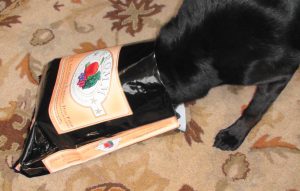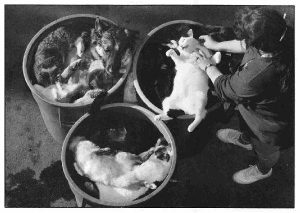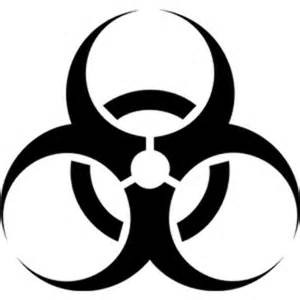Pet food safety is a big deal to me, and to my dogs. As my dog’s best advocate I want to know what is in the bag and whether it will harm my dogs.
I would like to believe I can depend upon news media to inform me of safety recalls in pet food and training treats so I can keep my pets safe, but that seems to be a false belief. In the past couple of months I learned of about eight safety recalls, including products which killed pets.
Local news media only mentioned one of those recalls, and I think that is because the manufacturing company is based in the state in which I live. In that case the barbituate pentobarbital was found in canned dog food containing horse meat, which came from a processing business located in the county where I live.
Evidently the euthanasia drug was used on a horse(s) and persisted through the dog food manufacturing process, and ultimately ended up in a can of dog food. Some poor dog tragically consumed the tainted food. The manufacturer promptly recalled the product and filed suit for punitive damages against the horse meat supplier.
Perhaps local news outlets are only concerned with product safety when the products are commonly found in local retail stores. That is only my speculation, but it seems logical. In this digital age of internet marketing that sort of logic is outdated.
Thanks to retail options such as Amazon, I can acquire products that are not readily available through local retailers and may have come from locations where tainted products are marketed.
In a story posted April 30, 2017 by TopTenToGo’s News Network, a California company reportedly used euthanized cats and dogs in the processing of pet food and pentobarbital was found in canned product.
How am I, as a responsible pet owner, supposed to know if I am poisoning my pets?
Thankfully there are at least two web-based organizations which monitor pet product safety recalls and inform the public. VIN Dog Food Recall Center and The Dog Food Adviser are devoted to promptly informing pet owners of these problems. All one need do is sign-up on their web site and from that point forward they will be promptly notified of product recalls.
I took advantage of this opportunity a few years ago and can attest that I never receive unwanted spam, marketing or other annoying email from these organizations. What I do receive is prompt notifications so I can quickly check my in-house stock of pet food and treats and determine whether my pets are safe.
After receiving five recall notices in one week I contacted four local television news stations and informed them of the two recall notification web sites (below) so they could inform the public. In return I received no acknowledgement of my email, nor have I seen any news broadcasts reporting safety recalls that I was otherwise aware of.
My suggestions to pet owners are four-fold.
First, sign-up for direct email notifications. This is the fastest way to be proactive and learn about risks to your pet’s health. I have seen lag time between notifications coming from these web sites, so I signed-up with both of them. As a result I always receive at least one notification on the date when the manufactured published it.
Second, contact your local news agencies and ask them to sign-up for recall notifications. If news stations receive enough pressure from their viewers they may see the value in notifying pet owners as a public service.
Third, carefully read commercial dog food labels. Protein sources should be named animals such as salmon, chicken, turkey or beef. Ambiguous references to “meat” or “meat by-products” may include diseased or otherwise tainted animal parts.
Fourth, if you want to add animal protein to your pet’s diet buy foods sold for human consumption. I buy pork, beef and chicken on sale and boil them. The broth goes on top of high quality dry food my dogs like and they enjoy bits of added meat as well.
If you are a pet professional, I urge you to sign-up and then immediately post all safety recalls on your social media outlets. That is what I do. Working together we can save pet lives and spare their stewards the dreadful consequence of learning of the risks, too late.




